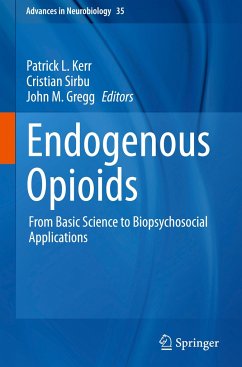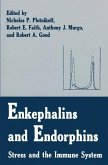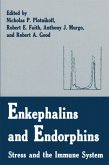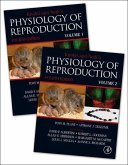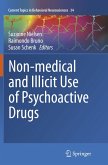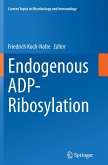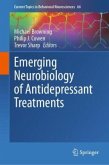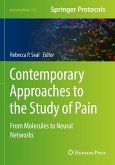Endogenous Opioids
From Basic Science to Biopsychosocial Applications
Herausgegeben:Kerr, Patrick L.; Sirbu, Cristian; Gregg, John M.
Endogenous Opioids
From Basic Science to Biopsychosocial Applications
Herausgegeben:Kerr, Patrick L.; Sirbu, Cristian; Gregg, John M.
- Gebundenes Buch
- Merkliste
- Auf die Merkliste
- Bewerten Bewerten
- Teilen
- Produkt teilen
- Produkterinnerung
- Produkterinnerung
This new volume provides a scientifically based exploration of the multifaceted world of endogenous opioids, including endorphins, enkephalins, dynorphins, endomorphins, and orphanin FQ/nociceptin, featuring a strong translational focus. Topics covered range from basic scientific investigations, to clinical applications, to investigations in areas such as oncology, childbirth, and disordered eating, to psychosocial contexts such as volunteering and positive emotions. One of the main goals of Endogenous Opioids is to provide recommendations for new directions in medical research and health policy that are rooted in sound scientific research.…mehr
Andere Kunden interessierten sich auch für
![Enkephalins and Endorphins Enkephalins and Endorphins]() Enkephalins and Endorphins166,99 €
Enkephalins and Endorphins166,99 €![Enkephalins and Endorphins Enkephalins and Endorphins]() FaithEnkephalins and Endorphins166,99 €
FaithEnkephalins and Endorphins166,99 €![Knobil and Neill's Physiology of Reproduction Knobil and Neill's Physiology of Reproduction]() Knobil and Neill's Physiology of Reproduction541,99 €
Knobil and Neill's Physiology of Reproduction541,99 €![Non-medical and illicit use of psychoactive drugs Non-medical and illicit use of psychoactive drugs]() Non-medical and illicit use of psychoactive drugs129,99 €
Non-medical and illicit use of psychoactive drugs129,99 €![Endogenous ADP-Ribosylation Endogenous ADP-Ribosylation]() Endogenous ADP-Ribosylation81,99 €
Endogenous ADP-Ribosylation81,99 €![Emerging Neurobiology of Antidepressant Treatments Emerging Neurobiology of Antidepressant Treatments]() Emerging Neurobiology of Antidepressant Treatments161,99 €
Emerging Neurobiology of Antidepressant Treatments161,99 €![Contemporary Approaches to the Study of Pain Contemporary Approaches to the Study of Pain]() Contemporary Approaches to the Study of Pain161,99 €
Contemporary Approaches to the Study of Pain161,99 €-
-
-
This new volume provides a scientifically based exploration of the multifaceted world of endogenous opioids, including endorphins, enkephalins, dynorphins, endomorphins, and orphanin FQ/nociceptin, featuring a strong translational focus. Topics covered range from basic scientific investigations, to clinical applications, to investigations in areas such as oncology, childbirth, and disordered eating, to psychosocial contexts such as volunteering and positive emotions. One of the main goals of Endogenous Opioids is to provide recommendations for new directions in medical research and health policy that are rooted in sound scientific research.
Produktdetails
- Produktdetails
- Advances in Neurobiology 35
- Verlag: Springer / Springer International Publishing / Springer, Berlin
- Artikelnr. des Verlages: 978-3-031-45492-9
- 2024
- Seitenzahl: 468
- Erscheinungstermin: 15. Juni 2024
- Englisch
- Abmessung: 241mm x 160mm x 31mm
- Gewicht: 807g
- ISBN-13: 9783031454929
- ISBN-10: 3031454928
- Artikelnr.: 68784319
- Herstellerkennzeichnung Die Herstellerinformationen sind derzeit nicht verfügbar.
- Advances in Neurobiology 35
- Verlag: Springer / Springer International Publishing / Springer, Berlin
- Artikelnr. des Verlages: 978-3-031-45492-9
- 2024
- Seitenzahl: 468
- Erscheinungstermin: 15. Juni 2024
- Englisch
- Abmessung: 241mm x 160mm x 31mm
- Gewicht: 807g
- ISBN-13: 9783031454929
- ISBN-10: 3031454928
- Artikelnr.: 68784319
- Herstellerkennzeichnung Die Herstellerinformationen sind derzeit nicht verfügbar.
Dr. Patrick Kerr completed his Master's and doctoral degrees in clinical psychology at the University of North Dakota. He completed his pre-doctoral internship training at the West Virginia University School of Medicine-Charleston campus and Charleston Area Medical Center. Dr. Kerr is a clinical psychologist, specializing in the treatment of severe psychopathology, suicidality, and traumatic stress. He is currently an Associate Professor in the Department of Behavioral Medicine and Psychiatry at West Virginia University School of Medicine-Charleston. He serves as Director of the WVU Behavioral Science and Psychopathology Research Division, and as Director of the WVU Dialectical Behavior Therapy Services Program. His main lines of research and academic work emphasize common mechanisms of severe psychiatric disorders, emotion regulation, suicide risk, trauma, and the psychobiological mechanisms of psychopathology. Dr. Cristian Sirbu is a Clinical Associate Professorat West Virginia University School of Medicine-Charleston campus and Charleston Area Medical Center (CAMC) and a Research Scientist at the CAMC Center for Cancer Research. He completed his dental and psychology doctoral degrees in Romania and a clinical psychology doctoral degree at Marshall University. His scholarly and clinical work are focused on assessment and treatment of anxiety, mood disorders and chronic pain across multiple populations and the enhancement of psychosocial interventions using pharmacological and technology-based approaches. He is interested in immunological mechanisms of psychopathology and the implementation of Patient-Reported Outcomes in oncology. Dr. John Gregg is a retired oral and maxillofacial surgeon and who served in academic positions at multiple institutions during his career. Dr. Gregg's academic career has included appointments as Professor of Surgery at University of North Carolina, Virginia Tech University, and Virginia Commonwealth University. During his academic and professional training, he completed five degrees as well as clinical residency in Oral and Maxillofacial surgery at the University of Michigan. Dr. Gregg's preclinical research was the first to demonstrate that peripheral injury of rodent trigeminal nerves may produce neuroanatomic pathoses in the transganglionic and central spinal trigeminal complex. He continues his active program of clinical research post-retirement, with an emphasis on mechanisms of neuropathic pain and microsurgical management of trigeminal nerve injuries.
Introduction to the volume: The Journey Ahead.- The Foundational Science of Endogenous Opioids and Their Receptors.- Interactions Between Endogenous Opioids and the Immune system.- The Opioid Growth Factor in Growth Regulation and Immune Responses in Cancer.- Role of Endorphins in Breast Cancer Pathogenesis and Recovery.- Modulatory Processes in Craniofacial Pain States.- Enkephalin Rescues Temporomandibular Joint Pain Related Behavior in Rats.- Endogenous Opioids and Exercise-Related Hypoalgesia: Modern Models, Measurement, and Mechanisms of Action.- Pain, Fear, Anxiety, and Stress: Relation to the Endogenous Opioid System.- The Roles of Endogenous Opioids in Placebo and Nocebo Effects: From Pain to Performance to Prozac.- Physical Exercise as an Intervention for Depression: Evidence for Efficacy and Mu-Opioid Receptors as a Mechanism of Action.- The Endogenous Opioid System as a Pathway of Positive Emotions.- Endogenous Opioids and Volunteering: On the Evolutionary Significance ofHelping Others.- Endogenous and Exogenous Opioids: Role in Substance Use Disorders.- Endogenous Opioid Activity as the Mechanism of Action for Mitragyna Speciosa (Kratom): The Current State of the Evidence.- Endogenous Opioids in the Homeostatic Regulation of Hunger, Satiety, and Hedonic Eating: Neurobiological Foundations.- Role of Endogenous Opioids in the Pathophysiology of Obesity and Eating Disorders.- Integration of Endogenous Opioid System Research in the Interprofessional Diagnosis and Treatment of Obesity and Eating Disorders.- The Role of Endogenous Opioids in Cardioprotection.- Endorphins, Sexuality, and Reproduction.- Depression, Cancer, Inflammation, and Endogenous Opioids: Pathogenic Relationships and Therapeutic Options.
Introduction to the volume: The Journey Ahead.- The Foundational Science of Endogenous Opioids and Their Receptors.- Interactions Between Endogenous Opioids and the Immune system.- The Opioid Growth Factor in Growth Regulation and Immune Responses in Cancer.- Role of Endorphins in Breast Cancer Pathogenesis and Recovery.- Modulatory Processes in Craniofacial Pain States.- Enkephalin Rescues Temporomandibular Joint Pain Related Behavior in Rats.- Endogenous Opioids and Exercise-Related Hypoalgesia: Modern Models, Measurement, and Mechanisms of Action.- Pain, Fear, Anxiety, and Stress: Relation to the Endogenous Opioid System.- The Roles of Endogenous Opioids in Placebo and Nocebo Effects: From Pain to Performance to Prozac.- Physical Exercise as an Intervention for Depression: Evidence for Efficacy and Mu-Opioid Receptors as a Mechanism of Action.- The Endogenous Opioid System as a Pathway of Positive Emotions.- Endogenous Opioids and Volunteering: On the Evolutionary Significance ofHelping Others.- Endogenous and Exogenous Opioids: Role in Substance Use Disorders.- Endogenous Opioid Activity as the Mechanism of Action for Mitragyna Speciosa (Kratom): The Current State of the Evidence.- Endogenous Opioids in the Homeostatic Regulation of Hunger, Satiety, and Hedonic Eating: Neurobiological Foundations.- Role of Endogenous Opioids in the Pathophysiology of Obesity and Eating Disorders.- Integration of Endogenous Opioid System Research in the Interprofessional Diagnosis and Treatment of Obesity and Eating Disorders.- The Role of Endogenous Opioids in Cardioprotection.- Endorphins, Sexuality, and Reproduction.- Depression, Cancer, Inflammation, and Endogenous Opioids: Pathogenic Relationships and Therapeutic Options.

